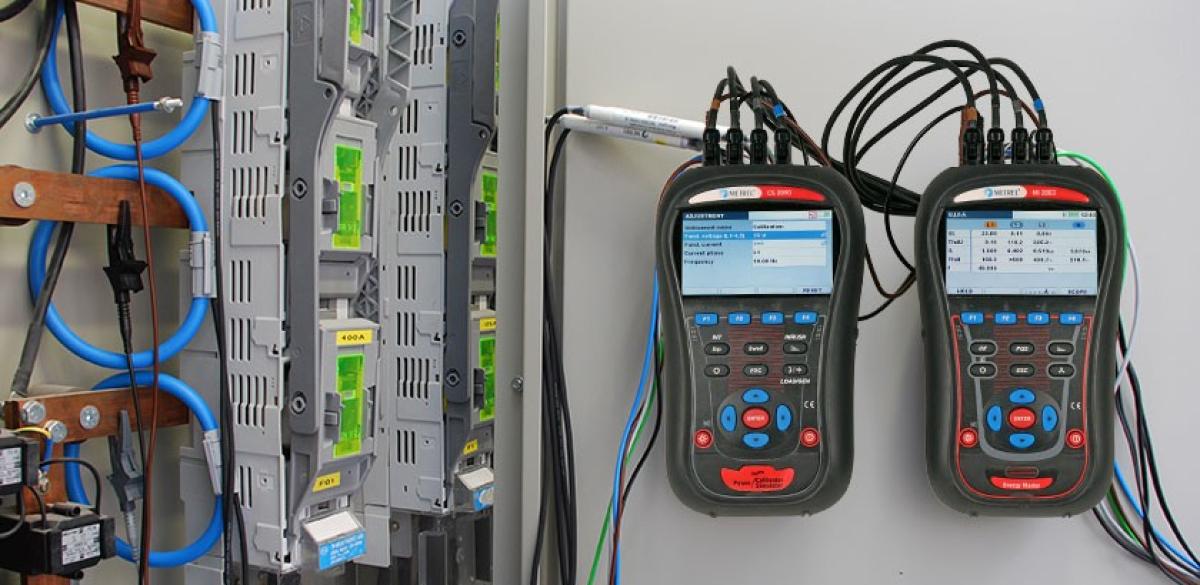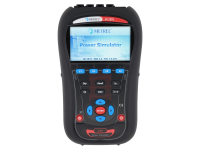Power calibrator/simulator
Power Quality Analysis

All test and measurement equipment requires periodic calibration to ensure accuracy within prescribed limits and power quality analysers are no exception. Long term recording of power quality events in demanding industrial and other environments can have deleterious effect on the accuracy of even the most rugged analysers.
Metrel offers two dedicated calibrators for calibrating both class A and class S (Metrel) power quality analysers. One of the calibrators can also be used as a simulator of power quality events and is a powerful didactic tool for training new generations of power quality surveyors or just demonstrating operation of connected Metrel power quality analysers.
Which is the best for you?
Features*
- Custom set up of power quality parameters.
- Saving of predefined setups and creation of different training scenarios.
- Calibration of Class A / Class S power quality analysers.
- Simulation of most applicable power quality phenomena.
- Generation of predefined calibration points for power quality analysers (voltage/current/frequency).
*Note: Presented features, functionalities and other information on this page represent a compound list of all products’ capabilities and not capabilities of each separate product. Consult datasheets and user manuals of each specific product for detailed information about supported features and functionalities.
Applications*
- Training process of power quality phenomena in technical schools, electric utilities, private sector etc.
- Periodic calibration of Class A and Class S power quality analysers.
*Note: Presented features, functionalities and other information on this page represent a compound list of all products’ capabilities and not capabilities of each separate product. Consult datasheets and user manuals of each specific product for detailed information about supported features and functionalities.




